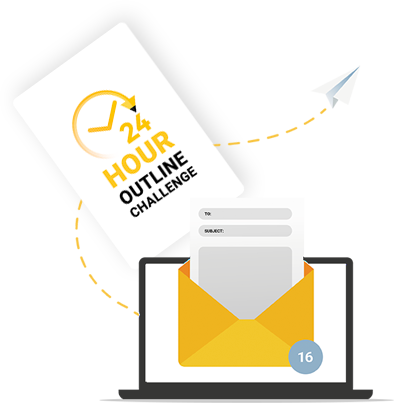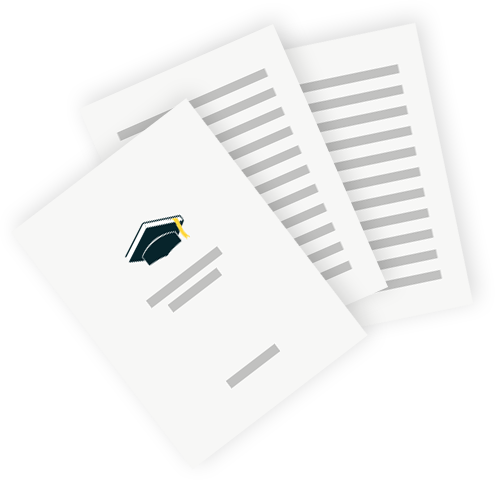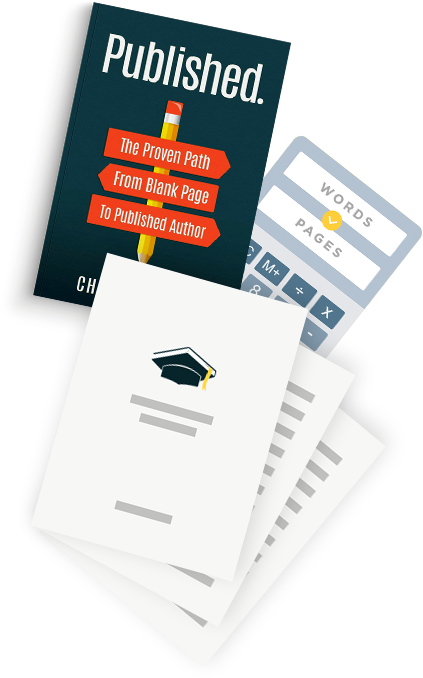Learning from examples of verbal irony will always make it stick a bit more. It’s one thing to read a blog post all about the types of irony, it’s another to see a big list laid out with the various ways you can use it.
Irony is often misunderstood, but you’re probably using it without even realizing what it is.
To help you use verbal irony in your writing intentionally, I’ve put together a guide that’ll help you understand what it is, when to use it, and a bunch of examples you can look at to help implement these tips.
Table of Contents
What is verbal irony?
Verbal irony is a literary element used in writing to capture characterization, and is more commonly known as sarcasm.
That’s the easy way to think of it. Because verbal irony is essentially saying something that is opposite of what is true or is unexpected in a given scenario, for emphasis or a joke or dramatic effect, sarcasm falls under the same umbrella.
When to Use Verbal Irony in Your Writing
Since verbal irony is nothing more than sarcasm, it’s obviously best used in two scenarios:
- During dialogue: Most examples of verbal irony would take place in dialogue, because it’s verbal. Pretty easy to remember? I think so too. We see a lot of it in quips and sharp retorts in witty dialogue scenarios, so you’ll find it present in many romance novels, but it can be in any type of book.
- Internal musings when written in first person point of view: A character can be verbally ironic inside their own minds, which means you can still use this method while writing the narrative of your book, as long as it’s in first person or it’s an italicized inner thought of the character when writing other points of view.
The purpose of verbal irony is different. Most of the time, it’s used for characterization, along with adding humor into your writing. But not all examples of verbal irony are funny. Either way, it does a lot to help your character development. We can get a very clear feeling of what a character is like based on how much sarcasm they use.
And of course, what that verbal irony is about in the first place.
Word to the wise: don’t overdo it. Less is more when it comes to sarcasm, unless your goal is to make a specific character annoying and alienate them from other characters in your book (and the reader).
Examples of Verbal Irony to Use in Your Own Book
You can come up with your own examples of verbal irony quite easily. If you have a character that’s meant to be a bit negative or snarky, you can come up with a ton of various sarcastic comments quite quickly.
All you have to do is ask yourself:
- What is the environment or situation actually like?
- What can they say that’s the opposite?
NOTE: Keep in mind that the power of using sarcasm or verbal irony in your writing has as much to do with the scenario and accompanying dialogue than it does what is specifically being said. It has to make sense with both the scene and the character, otherwise it’s not as effective.
Below you’ll find the examples with the bolded text describing the situation, and the unbolded quote representing the examples of verbal irony used in such scenarios.
Here are a bunch of examples of verbal irony you can use or tweak to fit your own story:
- On a rainy and gloomy day: “What a beautiful day it is outside!”
- After a long, tiring day: “I can’t wait to do this all over again tomorrow.”
- Seeing a messy room: “Wow, you’ve really kept this place tidy.”
- When something goes wrong: “Oh, fantastic! Just what I needed.”
- Referring to a difficult exam: “Well, that was a piece of cake.”
- Looking at a burnt dinner: “Dinner is served, ladies and gentlemen.”
- When plans fall apart: “Oh, great timing as always!”
- Seeing a complicated map: “This map couldn’t be any clearer.”
- When something is incredibly boring: “This is exactly how I wanted to spend my day.”
- After a failed performance: “Well, that couldn’t have gone any better.”
- Walking into a messy room: “I see you’ve been busy cleaning.”
- When someone spills a drink: “Nice job, Einstein.”
- Referring to a long queue: “Oh, look, a shortcut!”
- After making a mistake: “I’m a true master of perfection.”
- Seeing a broken object: “Just what I needed—another broken thing.”
- Seeing a messy room: “What a pristine environment!”
- After a car breakdown: “Perfect timing, as always.”
- When it’s pouring rain: “What a lovely day for a picnic!”
- Referring to a massive traffic jam: “Oh, great, a clear road ahead.”
- After burning dinner: “Dinner is served, gourmet style.”
- When things don’t go as planned: “Well, that went exactly as expected.”
- Observing a chaotic situation: “This is the epitome of orderliness.”
- Looking at a confusing puzzle: “Piece of cake!”
- After a terrible execution on a project: “Nailed it!”
- Seeing a broken phone: “My phone was feeling a bit too intact.”
- Referring to a very difficult task: “Well, this is a walk in the park.”
- Upon waking up from a restless night: “I feel so refreshed and energized.”
- Seeing a tardy person: “Right on time, I see.”
- When the Wi-Fi isn’t working: “I’m so glad the internet is flawless.”
- Referring to a long wait at the doctor’s office: “Wow, that was quick!”
- After a series of unfortunate events: “What more could I ask for?”
- Looking at a destroyed kitchen after cooking: “This place is immaculate.”
- When you forget an important event: “I meant to do that.”
- Referring to a boring lecture: “I wish this would never end!”
- After spilling coffee all over: “I was just baptizing my keyboard.”
- Seeing a dent on your car: “My car needed a new design element.”
- When your computer crashes: “I love it when my computer takes breaks.”
- Referring to a lengthy meeting: “Time flies in these meetings!”
- After a power outage: “I missed the darkness, so thoughtful.”
- Looking at a crumpled artwork: “This looks even better this way.”
- Upon hearing bad news: “Could this day get any better?”
- Referring to a scratched phone screen: “I wanted to test its durability.”
- When stuck in a crowded subway: “Personal space? Who needs that?”
- After getting lost in a new city: “I’m a natural navigator.”
- Seeing a restaurant with terrible reviews: “This place must be a hidden gem.”
- Referring to a broken chair: “I wanted a standing desk anyway.”
- When someone forgets your birthday: “I enjoy surprises like this.”
- After a red-eye with a crying baby: “I feel so well-rested and ready to go.”
- Seeing a failed baking attempt: “These cookies are gourmet charcoal.”
- Referring to a terrible hair day: “I was aiming for the ‘explosive’ look.”
- When you miss a deadline: “I work best under extreme pressure.”
- After a flat tire: “I needed a reason to practice changing tires.”
- Referring to a never-ending line: “I love waiting, it’s the best part.”
- Seeing a broken window: “The fresh air was getting boring.”
- Upon receiving a parking ticket: “I was planning to donate to the city.”
- Referring to a loud and obnoxious party: “The tranquility was deafening.”
- When you lose your wallet: “A minimalist lifestyle beckons.”
- After failing a test: “I’m just paving a unique academic path.”
- Seeing a flooded street: “I always wanted waterfront property.”
- Referring to a missed flight: “I prefer dramatic airport sprints.”
- When your phone battery dies: “I needed a break from notifications.”
- After a cooking disaster: “I’m reinventing culinary traditions.”
- Seeing a cracked mirror: “This mirror adds character to my room.”
- Referring to a broken umbrella: “I wanted to feel closer to the rain.”
- Upon encountering a full parking lot: “Parking challenges keep life exciting.”
- Looking at a messy house after a dinner party: “Wow, the cleaning fairy must have worked overtime here.”
- Upon receiving a parking ticket on a rainy day: “Perfect timing—just what I needed to brighten my day.”
- Referring to a traffic jam during vacation: “This traffic is my favorite tourist attraction.”
- Seeing a broken umbrella in a storm: “This umbrella never fails to protect me, especially in extreme weather.”
- After a computer crashes during an important presentation: “Thank you, technology, for always having my back.”
- Observing a long line at a coffee shop: “I actually wanted a caffeine-withdrawal headache.”
- Referring to a noisy neighbor’s party: “Their taste in music is truly enlightening.”
- Upon finding out the elevator is out of order on the top floor: “Stairs are such a refreshing way to start the day.”
- Seeing a car covered in bird droppings: “The birds must think my car is a work of art.”
- After being caught in a downpour without an umbrella: “Rain is my favorite hairstylist.”
We’ve all used sarcasm before. One of the best things you can actually do is notice when people in your real life use it and jot it down in a doc or notes app saved for examples of verbal irony. You can pull from that later when writing your book.



